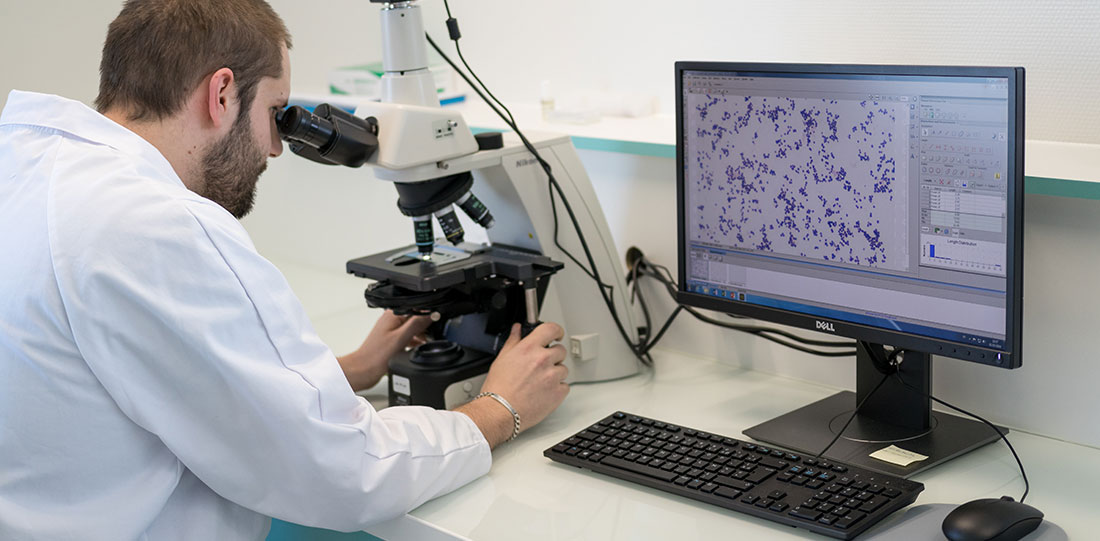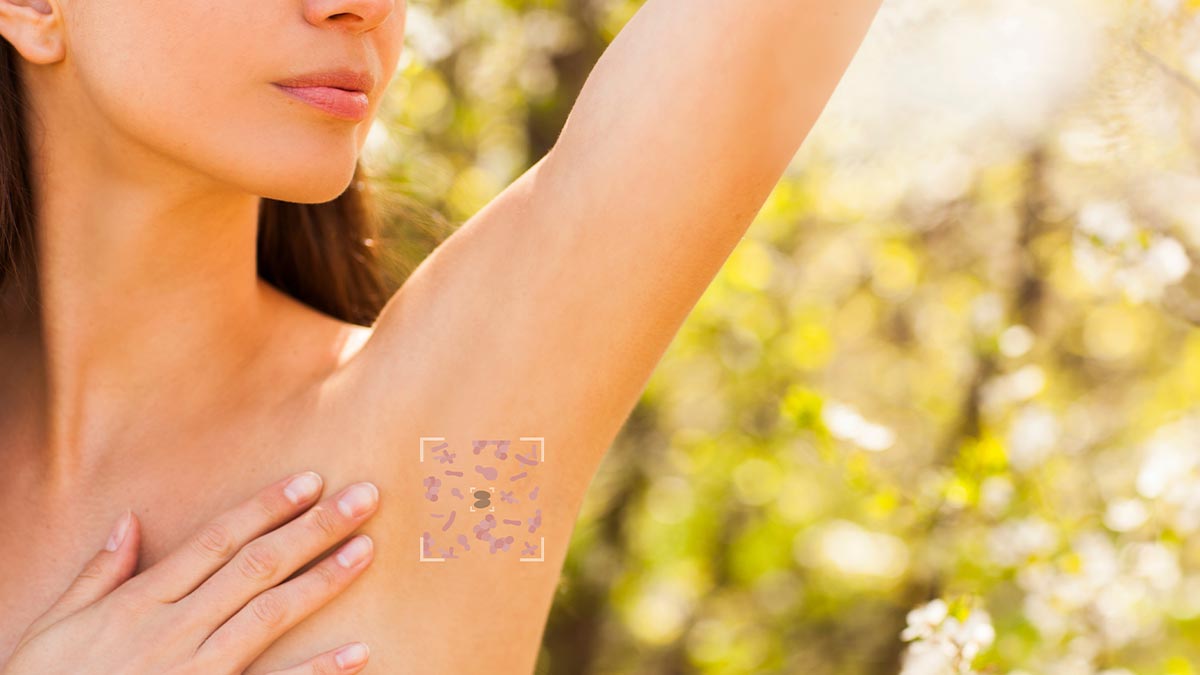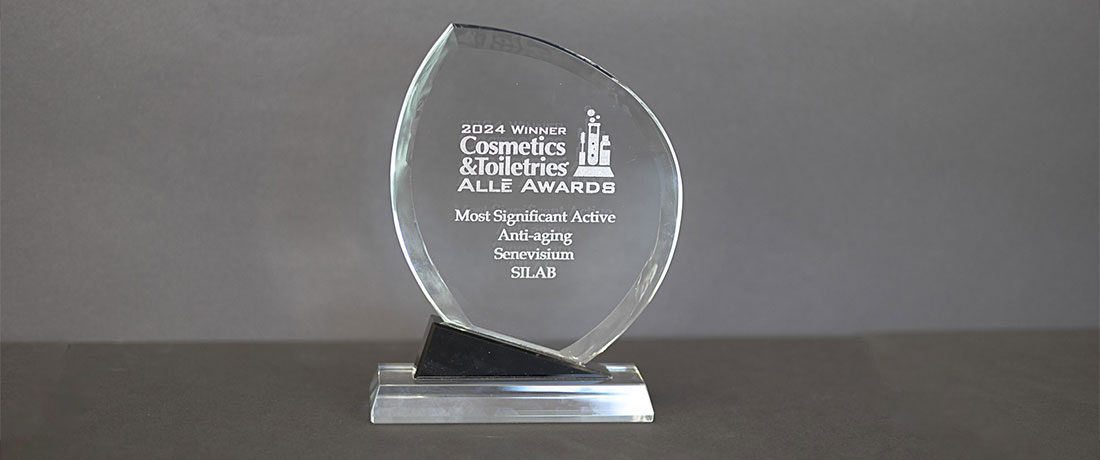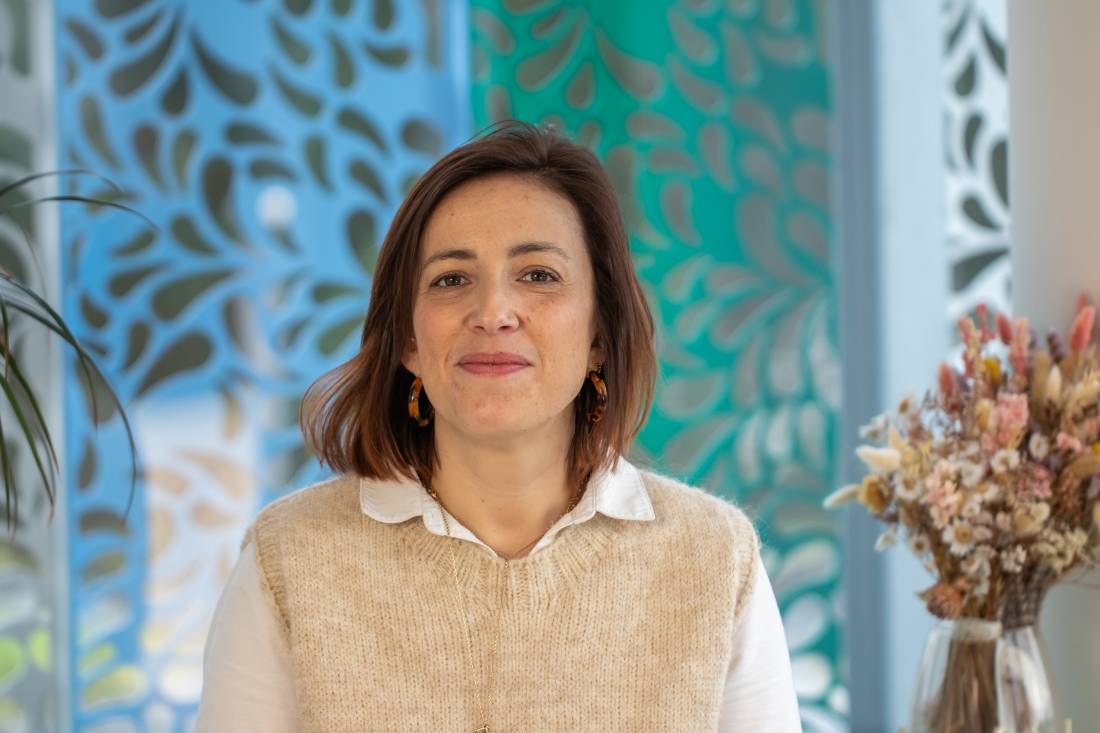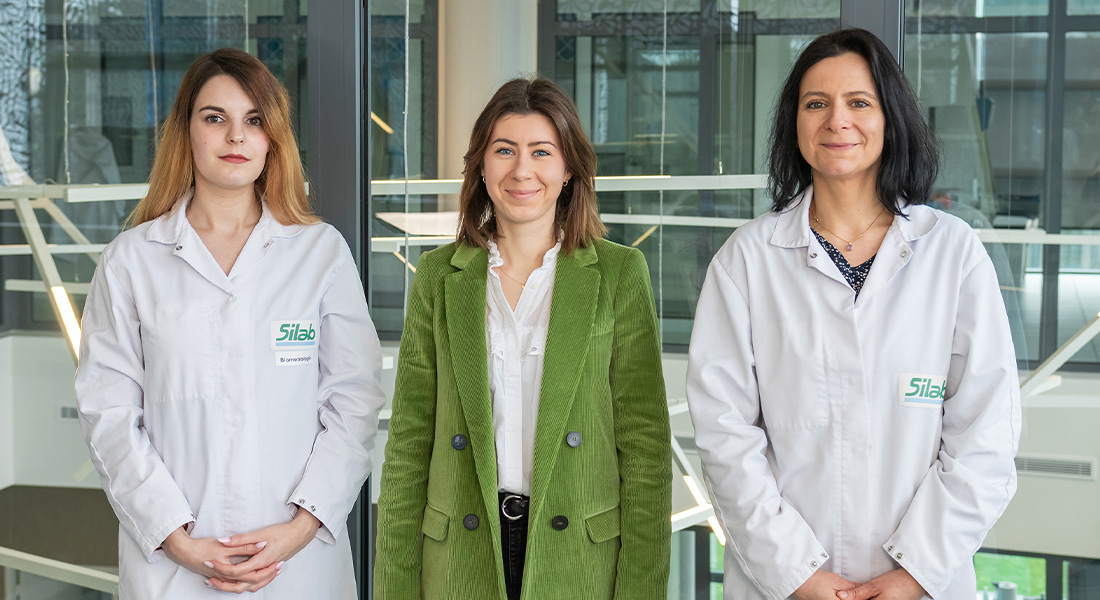The involvement of skin microbiota, in particular opportunistic pathogenic bacteria such as Staphylococcus aureus (S. aureus), in skin diseases is now well established. More recently, studies reported an overrepresentation of the species Staphylococcus epidermidis (S. epidermidis) on compromised lesional skin. This common commensal bacterium of the healthy skin microbiota with benefits for the host may be involved in the compromised skin phenotype.
The objective of the work carried out in Dr. Gallo’s team was to identify the role and mechanism of action of S. aureus and S. epidermidis in the pathogenesis of two inflammatory skin diseases: Netherton syndrome and atopic dermatitis.
The results supported the existence of a pathogenic role for S. epidermidis in compromised skin, similar to S. aureus. The deleterious effects of these two species result from an interspecies communication through a sophisticated system known as quorum sensing. This system allows synchronization of proteases secretion specific of each bacterial population. These virulence factors exacerbate the alterations in epidermal barrier function and inflammatory phenomenon characteristic of Netherton syndrome and atopic dermatitis.
Laura Cau, who was involved in the project at UCSD as part of scientific international volunteering funded by SILAB, explains: These discoveries highlight the considerable influence of the interspecies communication within the epidermal ecosystem on skin health. They strengthen the understanding of the role of commensal microbiota in the development of inflammatory skin diseases
.
*Dr. Richard Gallo is a leading medical scientist in the fields of human immunology, skin biology and microbiome. He received his post-graduate training at Harvard and is now a Distinguished Professor and the Founding Chairman of the Department of Dermatology at the University of California, San Diego. His groundbreaking research discovered the existence of antimicrobial peptides in mammalian skin, a field that has now grown to be seen as a major part of clinical medicine. Gallo's work has also revolutionized our knowledge of the function of the skin microbiome, with many research breakthroughs that have greatly advanced understanding of several human skin diseases including atopic dermatitis, rosacea and acne. Dr. Gallo is one of the highest cited active investigators in Medicine, with over 40,000 citations from more than 350 publications in prestigious journals including: Nature, Science, New England J. of Medicine, Immunity, Cell Host and Microbe and others.
1 Williams MR, Cau L, Wang Y, Kaul D, Sanford JA, Zaramela LS, et al. Interplay of Staphylococcal and Host Proteases Promotes Skin Barrier Disruption in Netherton Syndrome. Cell Rep. 2020 Mar 3;30(9):2923–2933.e7.
Cell Reports; Impact factor 7.815
2 Cau L, Williams MR, Butcher AM, Nakatsuji T, Kavanaugh JS, Cheng JY, et al. Staphylococcus epidermidis protease EcpA can be a deleterious component of the skin microbiome in atopic dermatitis. J Allergy Clin Immunol. 2020 Jul 4; S0091-6749(20)30953-2
The Journal of Allergy and Clinical Immunology; Impact factor: 14.110
